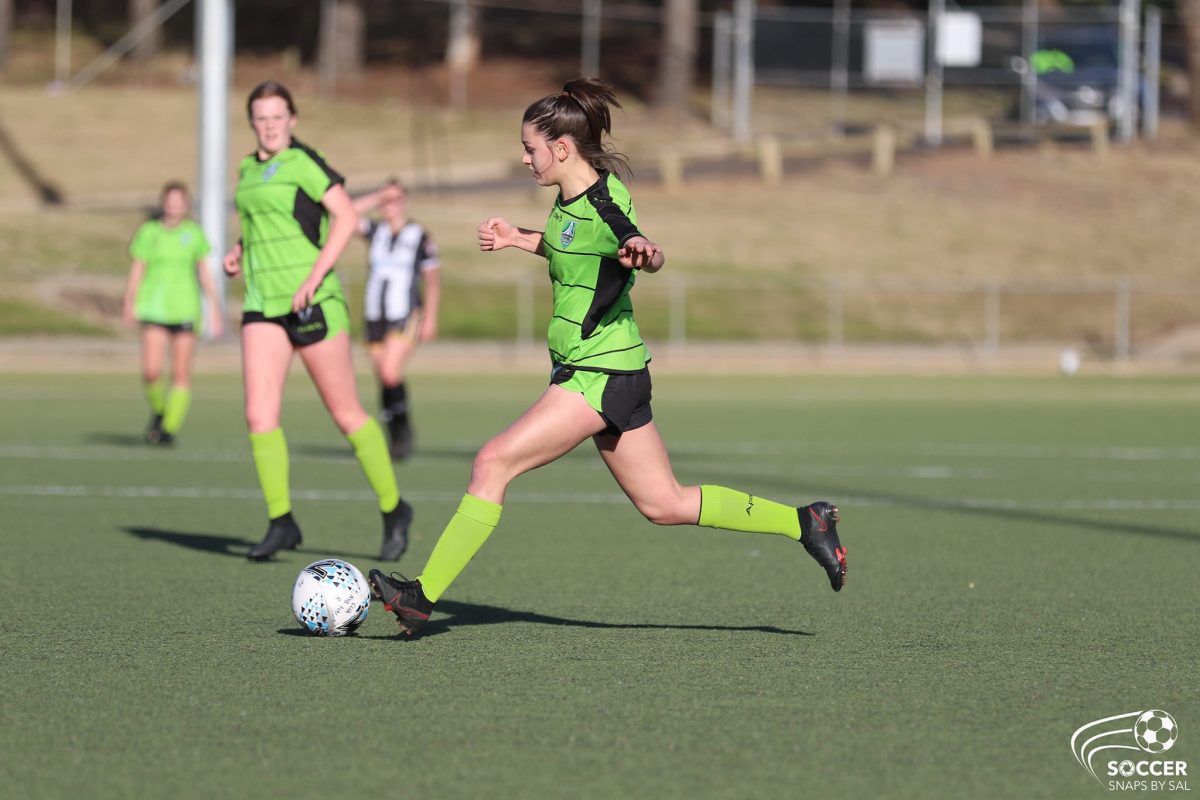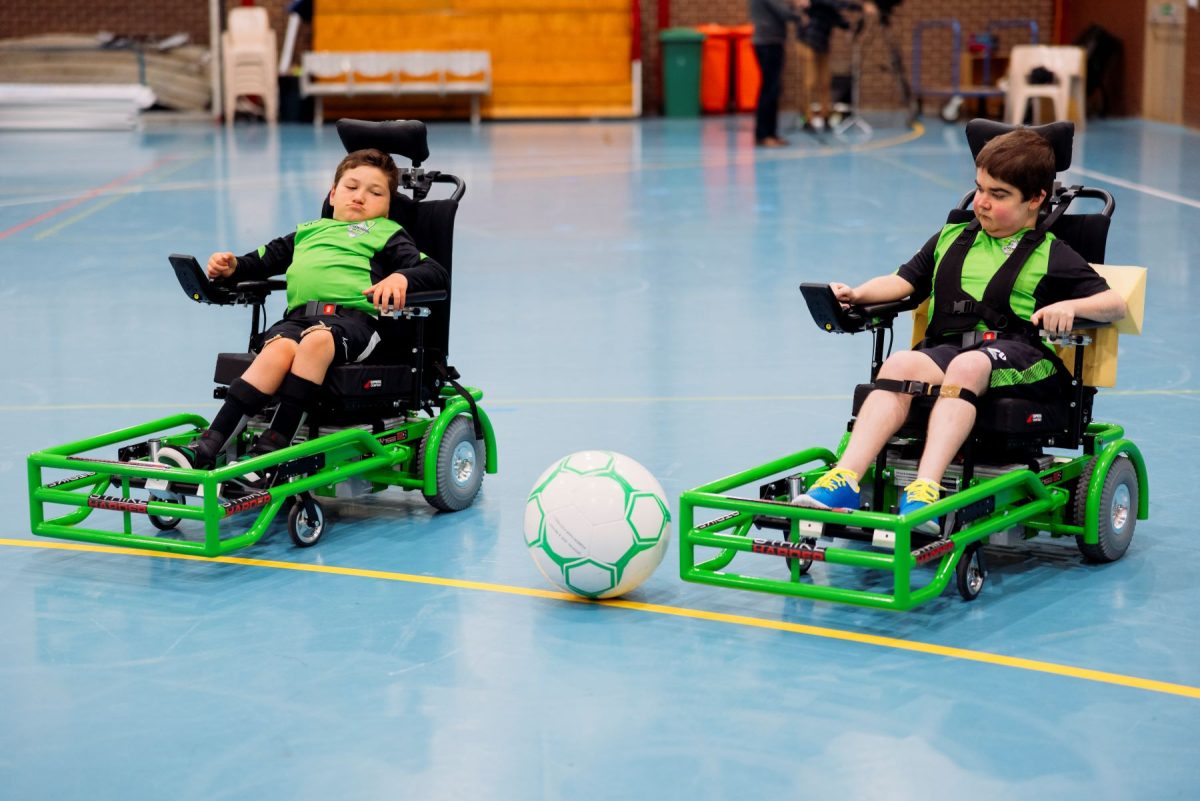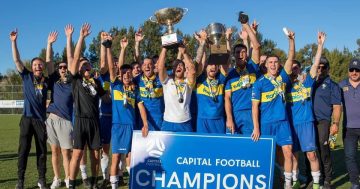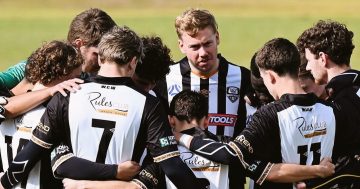
Capital Football chair Angelo Konstantinou: “We’re not getting rid of any pathway; we’re just changing the way the pathway looks.” Photo: Soccer Snaps by Sal.
Capital Football CEO Ivan Slavich has threatened he’ll resign unless the board reverses its decision to disband its Canberra United Academy (CUA) program for young girls.
His ultimatum came after Capital Football chair Angelo Konstantinou insisted women’s pathways to elite levels in Canberra aren’t going anywhere – they’re just going to look different.
Reaction has ranged from outrage to applause when the announcement to stop the CUA with “immediate effect” was made on Tuesday (26 September) afternoon.
Parents and the community expressed their concerns to Region that young women interested in playing at a professional level would no longer have a viable pathway to success in the Territory and that the decision had been made without consultation and for financial reasons.
But chair Angelo Konstantinou refuted the idea that disbanding the CUA and replacing it with a Talented Sports Program (TSP) was the wrong move.
“We’re not getting rid of any pathway; we’re just changing the way the pathway looks,” he told Region.
“Players will have ample opportunities to filter to other clubs and play in the highest levels in Canberra, complemented with the TSP.”
One accusation has been around an apparent lack of consultation with the Canberra football community, with one club representative stating to suggest this had taken place was “insulting”.
“[I’ve] been talking with other clubs and they too were not consulted over this decision. We have not even met with your CEO since his appointment,” they said.
“This was a short notice decision with little or no communication with the parents or players … please just call it what it is. As the former CEO of Capital Football has stated – this decision is short-sighted. It is not in the best interest of football in the region like you claim and there has been no genuine consultation over this significant change.”
However, Mr Konstantinou insisted adequate consultation with the community had taken place, outlining the board had spoken with its technical department, standard advisory committees (which also represent clubs), other federations and people within the office.
“The board has been discussing this for some time and looking at different opportunities,” he said.
“This was not an overnight decision. This did take us time to get through.”
Some members of the community have been calling for the board to release its meeting minutes to provide more transparency and clarity about the process.
Mr Konstantinou said that wouldn’t happen, as other federations also do not publish them.
“Some do publish excerpts, but we don’t publish minutes,” he said.
It’s also been suggested that the board had completely gone against the advice of CEO Ivan Slavich, who apparently had told them not to get rid of the CUA.
Mr Slavich did not respond to a request for an interview, however, he did make a comment during a speech at the Seniors Awards Ceremony on Thursday (28 September) night.
A source who attended the event told Region the CEO wrapped up his speech by effectively stating: “If the board don’t reverse their decision regarding CUA they can accept [my] resignation.”
Another email by Mr Slavich, seen by Region, seemed to foreshadow this announcement when he responded to a complaint from a concerned parent.
“It was a board decision, so please don’t blame me for this decision,” it read.
“I intend to make my view public on this decision soon.”
Mr Konstantinou said this was indeed a decision for the board to make.
“Ultimately, we’re responsible,” he said.
“This isn’t a case where it was a vote of four against four or even five against four – this was pretty much unanimous.”
Concerns were also raised with Region about the future of the powerchair football and all-abilities programs, which are part of the now-disbanded CUA.
Mr Konstantinou clarified those programs would continue.
“It’s unfortunate that they were captured in the [original] statement … we will be reaching out to them,” he said.

Powerchair football will continue despite the CUA being disbanded. Photo: Capital Football.
It’s been suggested to Region the real reason for the decision was because many board members have links with the Western Canberra Wanderers – which was about to be relegated due to coming last on the table – and Canberra Olympic, which was in direct competition with the CUA.
When asked by Region if there was a conflict of interest here, Mr Konstantinou disagreed.
“A conflict is when you don’t know what a person is involved in,” he said.
Ultimately, Mr Konstantinou said this move would boost the local game and talent, creating many opportunities for players to rise to a new challenge.
“At its inception, the CUA was doing a really good job and was worthwhile … but clubs have now picked up their game. You can see that in the results, in the players’ development,” he said.
“Now it’s time for a refresh … Capital Football is not against any development or player pathways, we’re just changing how it looks.
“A lot of other federations run TSPs as well … [the Territory] is unique as we’re not as big as other federations, so we need to cater to what we think is best for our region and surrounding region, and this is the best decision.”
The full details about what the new TSP will involve are expected to be announced in the coming weeks.
Original Article published by Claire Fenwicke on Riotact.









